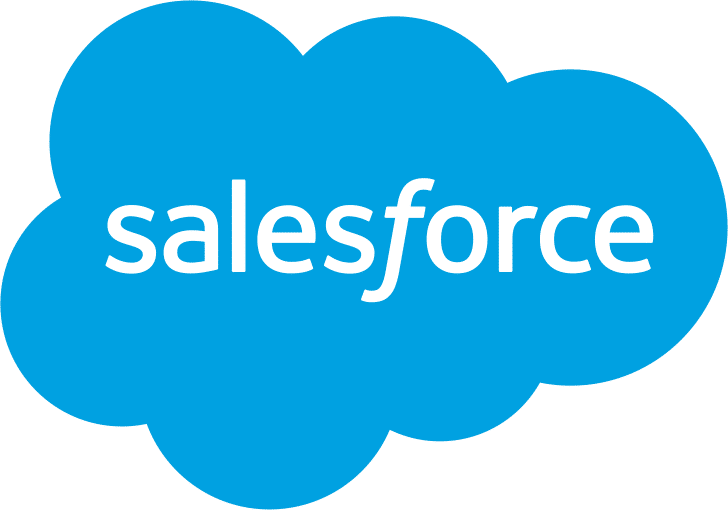VIRTUAL ROUNDTABLE SUMMARY
Existential disruption: moving away from the traditional utilities company
2020 has been a game-changer for many industries, accelerating digitisation and putting revenue models under pressure. For the utilities industry, these pressures are particularly acute in order to deliver essential services to customers while also battling bigger, longer-term issues, from fierce margin pressure to Net Zero commitments. Nick Kelly of Smart Communications and Gavin Geekie of Salesforce Industries reflect on the discussion with Future of Utilities’ Sebastian Fox and consider the radical changes facing the utilities industry on the road to Net Zero.
Utilities companies have risen to the challenge of the pandemic, rapidly mobilising remote working capabilities, keeping the lights on through difficult times and supporting distressed and vulnerable customers even as their own revenues come under pressure. Yet the pandemic is, we all hope, a short-to-medium problem compared to the longer-term challenges weighing on the industry. For in a world in which two enormous disruptions, digitisation and decarbonisation, are converging, utilities companies face something of an existential crisis. With consumers increasingly generating their own electricity and advanced algorithms capable of handling many of the roles of the energy supplier, it’s not unreasonable to ask “what is the point of a utilities company?”.
It was a question pondered by leading utilities executives from across Europe at a Virtual Roundtable in September 2020, jointly sponsored by partners Smart Communications and Salesforce Industries. Delegates agreed that the status quo is not sustainable, with much discussion of the pressures generated by the commoditisation of energy and the rise of new competitive threats, from the disintermediation of the aggregator sites to start-up suppliers with innovative propositions and digital-first solutions.
There was also clear agreement that the tech giants, such as Google and Amazon, present a looming threat. Google, for example, has developed the smart meter solution Google PowerMeter, which displays a user’s near-real-time electrical-usage data on a personalised iGoogle homepage. Alongside its existing smart home kit, such as the Nest intelligent thermostat, this pairing is yet another statement of intent from the tech giant.
This could become a real-and-present threat to incumbents. “The likes of Google and Amazon know not only how to use data to generate compelling propositions but they also have the financial muscle, an unrivalled customer base and the branding smarts to deliver a knock-out blow should they wish to,” mused Nick Kelly of SmartComms. “And these are businesses that are built on the recurring revenue stream from subscription services, a model that margin-squeezed utilities companies are increasingly keen to emulate.”
These are also businesses that know how to speak Generation Z. “This demographic is the bill-payer of the future, yet this is an industry that is behind the curve when it comes to younger customers,” noted Nick Kelly. “When this cohort takes off, we will not be ready.”
While some feel it’s only a matter of time before the likes of an Amazon enters the energy market, others think it’s more likely we will see partnerships between energy incumbents and the tech giants. “They may know data and customers, but utilities companies shouldn’t under-estimate their own strengths in terms of energy and industrial processes,” said Nick Kelly.
Decommoditising a commodity business
Collaboration is new to the energy industry but a number of companies are now trialling innovative link-ups, whether it’s new EV tariffs or smart home services. Making this work will require a new way of thinking and working, including a willingness to experiment and iterate that doesn’t come easily to innately conservative industries.
It’s a culture shift that needs to happen though on the road to customer-centricity. Our participants were clear that utilities companies will have to be creative to find margin in a highly commoditised market. Customers remain price-driven, and the financial fall-out from the pandemic means there will be ever more pressure to keep bills low.
Yet this race to the bottom on price just isn’t sustainable longer term and the constant pressure on the bottom-line is jeopardising efforts to innovate. “There’s been so much value erosion that it now deters investment because there’s wilting confidence that investment will deliver returns,” said Gavin Geekie of Salesforce Industries. “We need to find a way out of this death spiral on price.”
The mobile phone industry could provide a blueprint on how to begin this journey. It successfully decommoditised itself by reframing the customer proposition from a focus on minutes-based package to a monthly subscription service. There’s a clear analogy for utilities companies: mobile phone minutes and electricity are low care products for the consumer – they just want the phone/lights to work – so there’s the potential to charge a fixed monthly fee and differentiate instead on new value-added services and solutions. Even water is highly commoditised: customers say they want more focus on the environment but are unwilling to pay more. Getting customers to care will be key to shifting the focus from price to value.
The Net Zero agenda is seen as one way to make this shift. Those customers who buy an electric vehicle or invest in solar panels are far more engaged in their energy consumption and more willing to switch to innovative tariffs and adopt new services. Yet this is still very early days and there’s a long way to go until EVs and domestic generation become mainstream.
Until then, the utilities industry is a low-touch, low engagement service which customers take for granted even though it underpins every aspect of daily life. With the typical customer spending just five minutes a year dealing with energy issues, it’s clear there’s plenty of scope to increase engagement and loyalty, but this can only be done through highly targeted and meaningful interactions and services. Smart meters have long been seen as a way to tap into new data streams to generate meaningful insights that can be shared with customers to help them improve energy efficiency and lower bills. This too, however, is proving a long journey with the adoption of smart meters much lower than anticipated while those companies exploring bolt-on maintenance services as a way to add value have found it difficult to make the economics work.
Searching for answers to big questions
Increasingly, it seems, the traditional energy company is being eaten alive by a thousand tiny bites – from the decarbonisation agenda, changing customer behaviours and digitisation. The rise of the consumer – whether individually or as part of a collective – as a generator in their own right alongside tech-powered sales and distribution means the traditional energy company could find themselves squeezed into the role of middleman, acting as match-maker in a peer-to-peer marketplace. That’s not a comfortable spot to occupy in a digitally-powered world where smart algorithms can handle this balancing act. This disintermediation of the energy company lies some way in the future but it’s completely valid for energy companies to be asking some searching questions now about what does an energy company actually do in the future? What services will they provide and how will these generate income? Will the energy company of the future have a customer interface? Or even any energy assets? These are searching questions and it’s going to take a new type of leadership to find the right answers. There will be no-one-size fits-all solution and not all innovations will work.
Bigger companies will have the scale and resources to take on more risk and differentiate through a wider product slate but may increasingly find the weight of their huge customer base to be an expensive load to bear. New technologies can of course help to reduce the cost to serve and overcome the burden of legacy platforms with a wide range of strategies to choose from. Some companies are adopting a peacemeal approach by building new digital platforms alongside their existing ones, while others are starting afresh by identifying best in class solutions to implement. Small companies may have the speed and agility to innovate in niche markets but, as we have seen over the past 18 months, could struggle to remain financially viable in challenging market conditions. And all players, regardless of size, will find regulation a constant challenge but one which is non-negotiable.
For now, with the pandemic still burning and companies focused on meeting customer needs, it can be hard to find the space to ask these big questions. But as participants in the Smart Communications/Salesforce Industries roundtable agreed, it’s only by being creative, collaborative and open to challenge that the industry will find solutions that will shape the utilities company of the future.
ROUNDTABLE PRODUCED IN PARTNERSHIP WITH
Smart Communications™ is the only provider of a customer conversations management platform. More than 500 global brands rely on Smart Communications to deliver smarter conversations across the entire lifecycle—empowering them to succeed in today’s digital-focused, customer-driven world while also simplifying processes and operating more efficiently. This is what it means to scale the conversation. Smart Communications is headquartered in the UK and serves its customers from offices located across North America, Europe, and Asia Pacific. The Smart Communications platform includes the enterprise-scale customer communications management power of SmartCOMM™, forms transformation capabilities made possible by SmartIQTM and the trade documentation expertise of SmartDX™.
SmartCOMM™ for Salesforce Energy and Utilities Solution Brief: discover how leading energy and utilities firms depend on SmartCOMM™ for Salesforce to drive information-rich, business-critical, complex documents and communications throughout the enterprise.
Salesforce Industries, formerly Vlocity, is a leading provider of industry-specific cloud and mobile software for the world’s top communications, media and entertainment, energy, utilities, insurance, health, and public sector organizations. Salesforce Industries possesses deep expertise in vertical industries, enabling organizations to digitally transform, simply and seamlessly. Leveraging industry-specific processes and data models across any channel, Salesforce Industries helps customers increase sales and digital adoption, improve service, marketing agility, and operational efficiencies.



